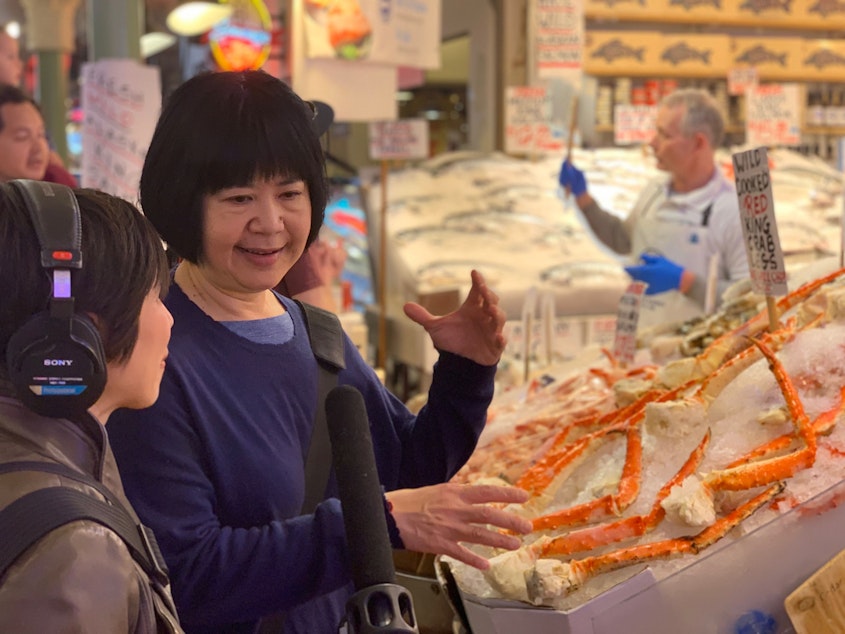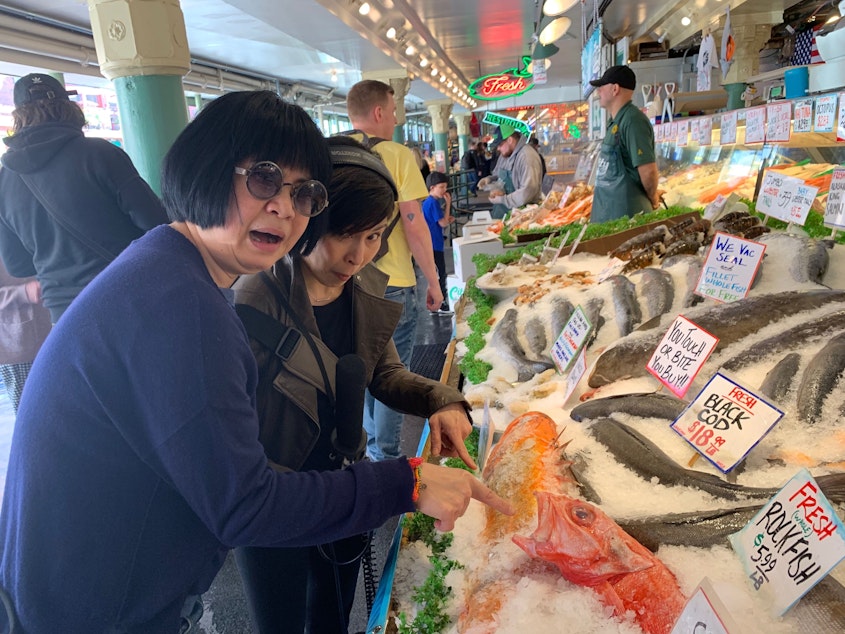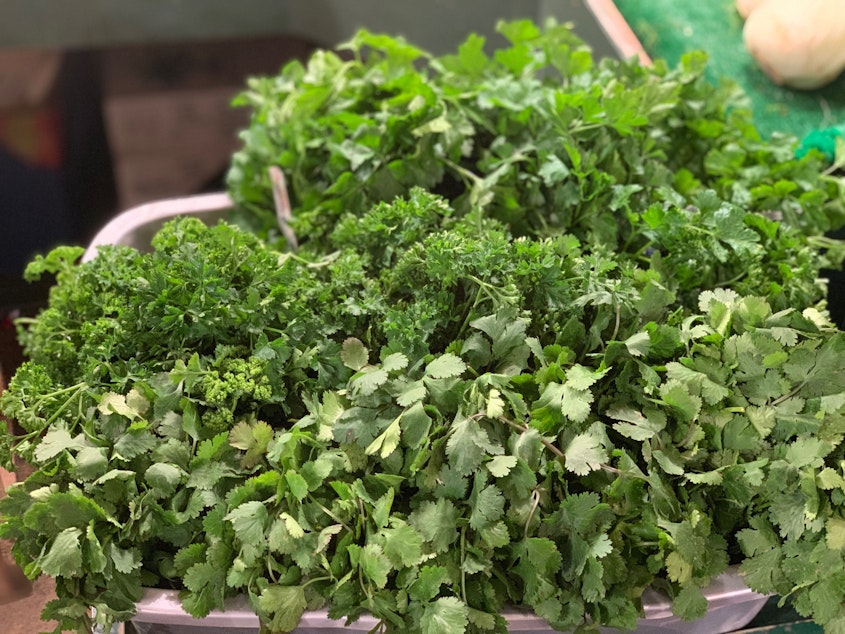You cook tacos or pizza on weeknights. Why not Vietnamese?

You probably know your way around a Vietnamese menu — the pho, banh mi and rice paper rolls. But have you ever tried making those dishes at home?
California-based food writer and cookbook author Andrea Nguyen thinks you can.
If you can put together a taco or pizza dinner on a weeknight, Nguyen asks: Why not Vietnamese?
“You can also make a banh mi sandwich whenever you want. Lemongrass pork, yeah!" Nguyen said. "Make a green mango salad if you want, throw that together. And that’s what I’m trying to do with the book, to help people understand the foundations of Vietnamese flavors and textures so that they can work it into their repertoire.”
Nguyen says you don’t even need to go to an Asian market for the ingredients. She was in Seattle this week for her new book, "Vietnamese Food Any Day," so as part of our "Chef's Day Off" series — and to make her point — we walked through Pike Place Market.

Sponsored
We stopped at a fish stand. She pointed to the rainbow trout. It would make a nice filling for fresh rice paper rolls, she said.
“I love to grill that fish and then use it to wrap up in rice paper rolls with herbs like mint and cilantro and lettuce and rice noodles," Nguyen said. "And make a little dipping sauce, a little nuoc cham.”
Farther down, we came across some produce.

Sponsored
"When my family came here, we were really happy to see mint and cilantro because those are like the foundational herbs of making Vietnamese food," Nguyen said.
But other ingredients weren’t available in 1975 when Nguyen and her family came to America, just before the fall of Saigon. They settled in San Clemente, California. Nguyen remembers exploring the supermarkets as if it were an adventure.
“It was so different from the wet markets, the open air markets that I had shopped at in Saigon and where we lived," Nguyen said. "Everything was neat. There were fruits like apples, and strawberries, and cherries, things that were like luxe items.”
In the beginning, the family improvised with what was available. They used soy sauce for fish sauce, for example. Later, they would travel long distances to get what they really craved.
“We would make these three-hour trips to Los Angeles Chinatown from San Clemente and we would stock up on fish sauce and rice noodles and rice paper," Nguyen said.
Sponsored
Nguyen's love of cookbooks started at an early age. She noticed something was missing when it came to Vietnamese cuisine.
"I never ever saw a Vietnamese cookbook that reflected my family’s experience or the experiences of Vietnamese people in America, and coming here preserving our heritage," Nguyen said. "It was always about Vietnamese people in Vietnam, like it was something removed as if we were in a part of America.”
She knew she wanted to write a cookbook that tells the story about her family and other Vietnamese families. For Nguyen, these works aren’t just about techniques and creating flavors, but creating human connections through food.
Today’s supermarkets reflect America’s changing demographics. Nguyen pointed out you can now find ingredients like hoisin sauce, sriracha and tofu in their inventory. It also shows people’s interest in cooking and eating globally. That fits well with Nguyen’s mission to create linkages between people and cultures.




